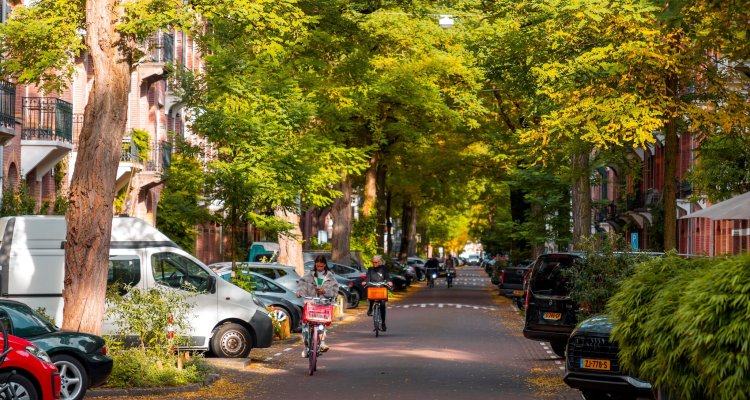
Project
Accelerating Just Climate Transitions (KIN-ACT)
The KIN-ACT project is the first research project of the Dutch Climate Research Initiative. Climate change is one of the greatest challenges facing our society. The impacts of climate change are becoming increasingly visible, even in the Netherlands. This project aims to accelerate just climate transitions in various Dutch neighborhoods. At HSO, we will conduct action research into just climate transition practices at community level, focusing on urban greening in Nijmegen.
> To investigate, stimulate and implement participatory processes, that support just transitions at a neighborhood scale.
> To co-design dynamic and spatial pathways that accelerate just transitions in neighborhoods.
> To improve climate transition processes and management at the neighborhood scale and disseminate lessons learnt.
Approach
Phase 1 entails an evaluation of participation methods and current-state of affairs regarding just climate transitions in neighborhoods - with actionable insights. A literature review will be conducted to collect insights and best practices about fair and inclusive public participation regarding just climate transitions. Based on the review, we will co-develop a uniform framework that enables organizing the aforementioned insights into a roadmap that can i) immediately guide public participation initiatives, and ii) serve as a living framework that helps to organize insights from new case studies, including those in this work package. An actionable roadmap in a user-friendly format (such as, for example, a decision-making tree, an infographic, a short presentation) is envisioned.
Furthermore, in Phase 1 the decision-making processes and the problem statement in the context of neighborhood case studies (Maastricht, Nijmegen, Rotterdam) will be mapped. An inventory will collect relevant existing information about the decision context of the neighborhood, including its issues, goals, and current (policy) plans. We will give particular attention to adaptation, mitigation and sustainable development plans and challenges that support just climate transitions.
Phase 2 focuses on action-research and applications in neighborhoods. Lessons learnt will contribute to the just and inclusive framework of Phase 1. At HSO, we focus on the Nijmegen case, where action research will support the implementation of the Green Corridor through participatory processes and co-creation of spatial plans to ensure a just distribution of green spaces, with the aim of creating a healthy living environment for residents in the adjacent neighborhoods. It directly builds on existing local health networks, research, and stakeholder initiatives. 3-4 workshops are envisioned to support the actual transformation and execution of climate transition plans in practice (learning by doing) together with stakeholders in the neighborhood. Furthermore, a communication plan for municipalities will be developed to inform and involve residents and other local stakeholders in neighborhood climate transition projects.